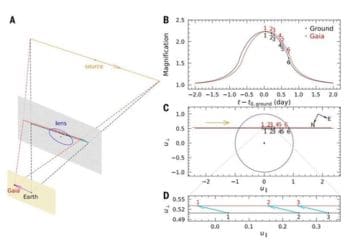- Home
- Mobiles
- Mobiles News
- Redmi Phone Coming Soon With Support for ISRO NaVIC Navigation System, Xiaomi Reveals
Redmi Phone Coming Soon With Support for ISRO NaVIC Navigation System, Xiaomi Reveals
Xiaomi is yet to reveal the name of its upcoming Redmi-branded phone, but odds are that it will debut under the Redmi Note 9 series.

Qualcomm’s new Snapdragon 662 and Snapdragon 460 chips also offer NaVIC support
Xiaomi was in talks with the Indian Space Research Organisation (ISRO) earlier this year over bringing the space agency's NaVIC navigation system to its lineup of smartphones. Manu Kumar Jain, Managing Director of Xiaomi India, has now announced that the next Redmi-branded phone set to launch in India will offer NaVIC support. The Xiaomi executive added that the upcoming Redmi phone will also be the first in the world to feature NaVIC positioning system. However, the model name of Xiaomi's upcoming phone remains under the covers as of now.
Jain tweeted a photo of himself with ISRO Chairman, Dr. K Sivan, who spearheaded India's Chandrayaan-2 mission. After holding talks with ISRO back in January, Xiaomi confirmed it will be one of the first brands to launch a phone powered by the newly launched Qualcomm Snapdragon 720G SoC, which happens to offer NaVIC support.
Glorious new chapter for tech in #India! 🇮🇳
— Manu Kumar Jain (@manukumarjain) February 25, 2020
Proud to announce that upcoming #Redmi phone will be 1st in world to feature @isro's #NavIC - Nation's own satellite navigation system! 🛰️
Great meeting Dr. K Sivan (Chairman #ISRO) & team to finalize this!#Xiaomi ❤️ #NavICinXiaomi pic.twitter.com/GcE1EEocmL
We expect the upcoming Redmi phone teased by Jain to fall under the popular Redmi Note series. Xiaomi launched the Redmi Note 7 and the Redmi Note 5 series in the month of February in the past couple of years. Going by the company's release cycle, the Redmi Note 9 (or its Pro variant) is the most likely candidate to debut as the next Redmi phone, complete with NaVIC support.
And now that arch-rival Realme has announced the date for Realme 6 and Realme 6 Pro's debut, we expect Xiaomi to come up with an answer soon in the same segment. Also, the positioning of Snapdragon 720G in Qualcomm's lineup suggests that it will power Android phones in the lower mid-range segment, which is where the Redmi Note series has been positioned lately.
As for NaVIC, it is the operational name of Indian Regional Navigation Satellite System (IRNSS). ISRO claims IRNSS was created for terrestrial, aerial and marine navigation, disaster management, vehicle tracking, and fleet management, as well as integration with mobile phones. NaVIC will provide a position accuracy of 20 metres (or less) in primary service areas.
Catch the latest from the Consumer Electronics Show on Gadgets 360, at our CES 2026 hub.
Related Stories
- Samsung Galaxy Unpacked 2025
- ChatGPT
- Redmi Note 14 Pro+
- iPhone 16
- Apple Vision Pro
- Oneplus 12
- OnePlus Nord CE 3 Lite 5G
- iPhone 13
- Xiaomi 14 Pro
- Oppo Find N3
- Tecno Spark Go (2023)
- Realme V30
- Best Phones Under 25000
- Samsung Galaxy S24 Series
- Cryptocurrency
- iQoo 12
- Samsung Galaxy S24 Ultra
- Giottus
- Samsung Galaxy Z Flip 5
- Apple 'Scary Fast'
- Housefull 5
- GoPro Hero 12 Black Review
- Invincible Season 2
- JioGlass
- HD Ready TV
- Laptop Under 50000
- Smartwatch Under 10000
- Latest Mobile Phones
- Compare Phones
- Vivo Y50e 5G
- Vivo Y50s 5G
- Realme 16 Pro+ 5G
- Realme 16 Pro 5G
- TCL Nxtpaper 70 Pro
- OPPO A6 Pro 5G
- Honor Power 2
- OPPO A6s
- Zephyrus Duo 16 (2026)
- Asus ROG Zephyrus G16 (2026)
- Realme Pad 3
- OPPO Pad Air 5
- Xiaomi Watch 5
- Huawei Watch 10th Anniversary Edition
- Acerpure Nitro Z Series 100-inch QLED TV
- Samsung 43 Inch LED Ultra HD (4K) Smart TV (UA43UE81AFULXL)
- Asus ROG Ally
- Nintendo Switch Lite
- Haier 1.6 Ton 5 Star Inverter Split AC (HSU19G-MZAID5BN-INV)
- Haier 1.6 Ton 5 Star Inverter Split AC (HSU19G-MZAIM5BN-INV)

















